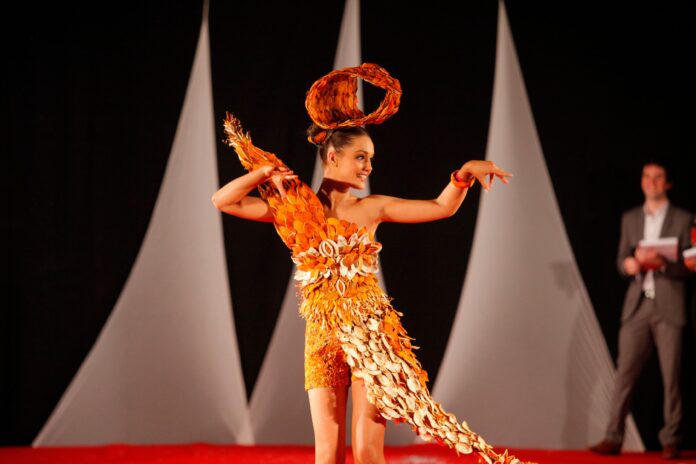Demand for fast fashion is greater than ever and doesn’t look like slowing down. Yet, in addition to devastating environmental effects, the fashion industry has a significant human impact. So, what can we do to reverse the trend and support more sustainable fashion?

Junk Kouture is a global platform for young people’s creative expression based in Dublin. It is one of many youth-led projects inspiring climate action by turning fabric into something fabulous. The goal is to empower young people through creativity and sustainability to produce positive change.
Junk Kouture runs workshops, competitions and education programmes combining textiles, design, and dance with the aim of turning old clothes, unwanted materials and even food waste into something beautiful. In September 2021, Junk Kouture will launch a global competition inviting young creatives from five international cities to get involved and learn about sustainability by doing something fun and innovative.

An industry beyond repair?
The fashion industry produces between 2 to 8 per cent of global carbon emissions, with textile dyeing being the second largest polluter of water globally. Every second, the equivalent of one garbage truck of textiles is landfilled or burned. If nothing changes, by 2050 the fashion industry will use up a quarter of the world’s carbon budget. Textiles are also estimated to account for approximately 9% of annual microplastic losses to the ocean. Then there is the human cost: textile workers are often paid derisory wages and forced to work long hours in appalling conditions.
Junk Kouture (JK) encourages young adults to challenge the traditional ‘take-make-dispose’ linear model of fashion production. By turning “waste” back into wearable fashion, JK is fostering a new generation of circular engineers. Through the JK process, participants become more aware of sustainable development and our role in destroying or living in harmony with nature.
Women’s rights are also key to fighting for positive change as more than 80% of garment workers around the world are women. These workers are some of the most vulnerable, and lowest paid workers across the globe. Being a conscious consumer not only benefits the environment but also the very people who make your clothes.
#GenerationRestoration
The past few years have shown how young people can lead the way in climate action and JK is a great example of this happening right now. We can see encouraging trends showing that young people are willing to spend more on ethical brands and buy second-hand clothes. There are many more people buying upcycled products, not just in the fashion industry, and there are real signs of change driven by education about human rights and climate change.

Get Involved
For any budding artists, designers, activists, or schools looking to take part in the Junk Kouture competition, you can sign up now on their website before September. Be sure to follow @junkkouture for lots of updates and inspiration on the upcoming competition in your city!
– Download the JK handbook which has everything you need to get started – available here.
– Follow Jk on social channels @junkkouture for daily updates and inspiration.
– Create an Instagram account for your design and document your journey.
Additional Links:




